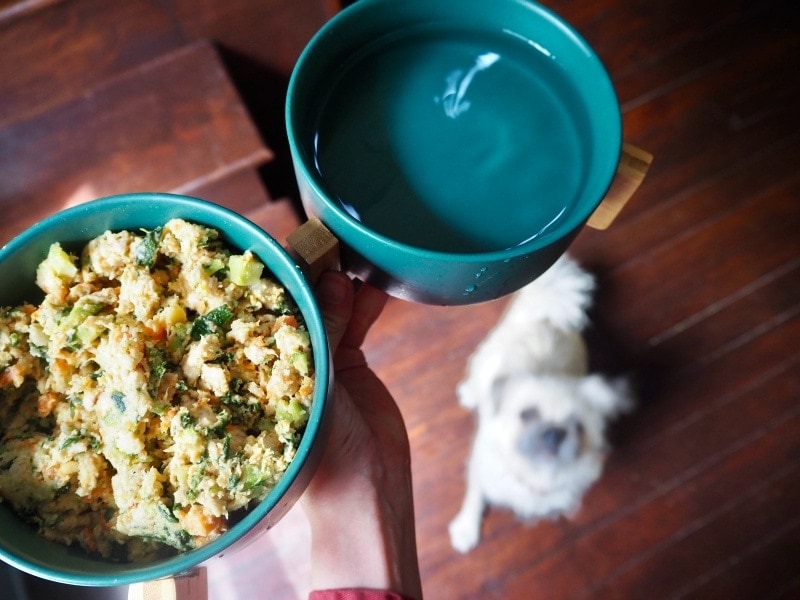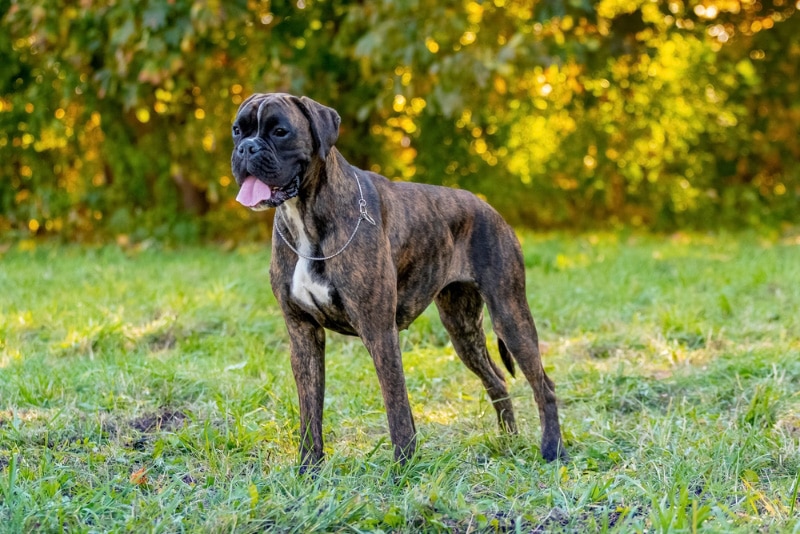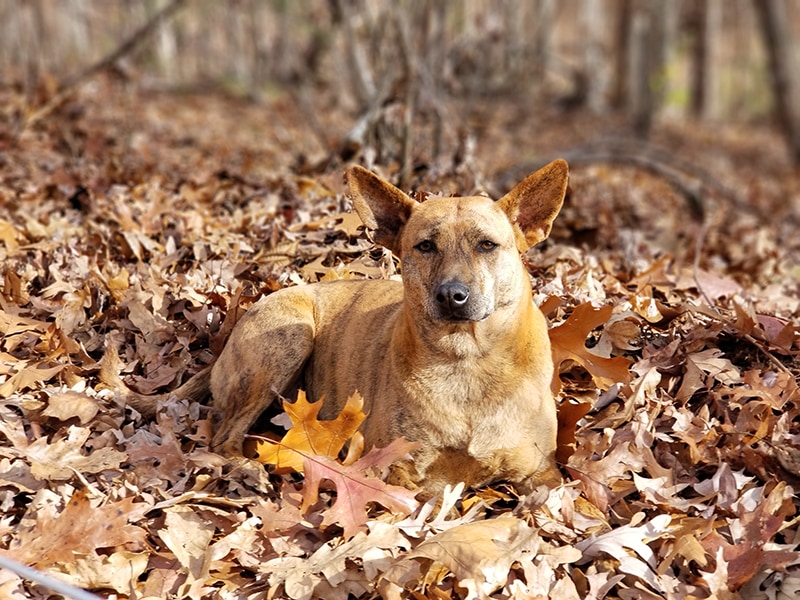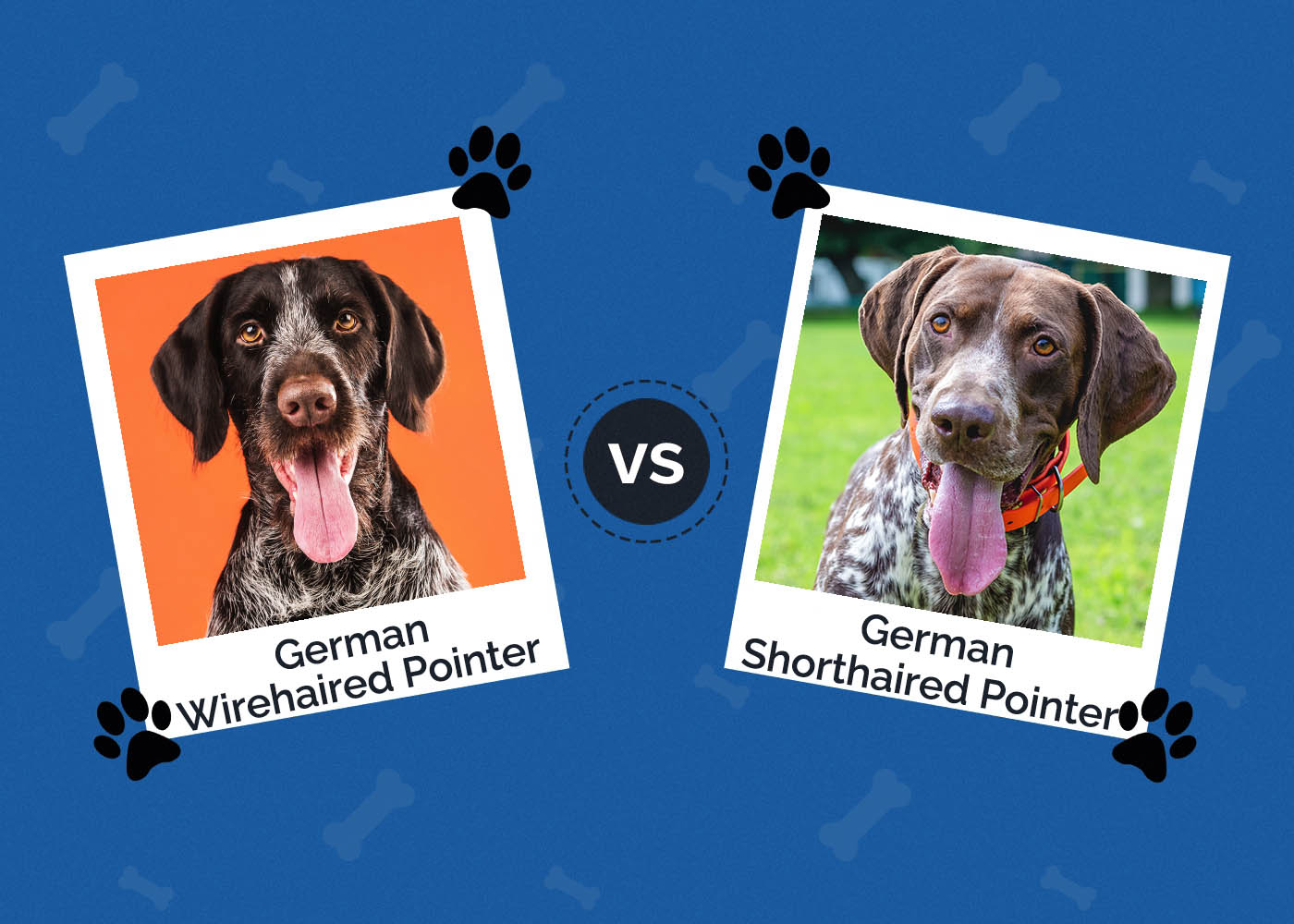Why Does My Dog Poop Immediately After Eating? 4 Vet Reviewed Reasons
Updated on
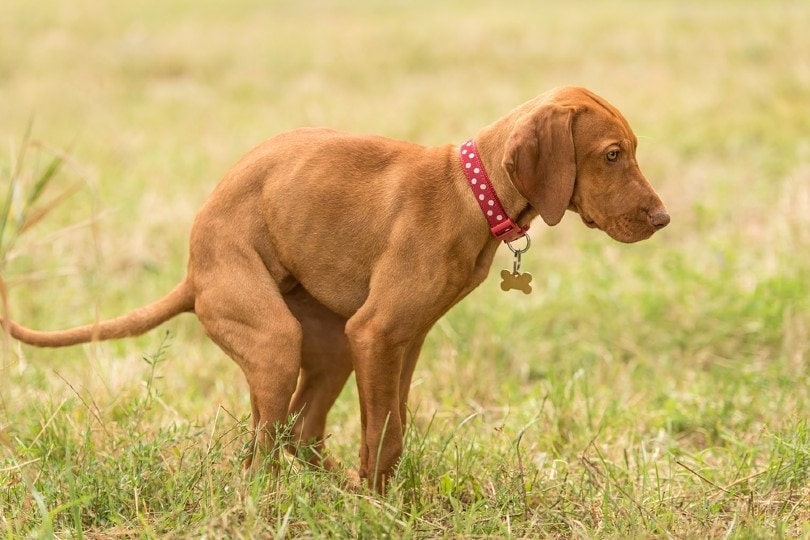
Click to Skip Ahead
When it comes to our canine companions, we, as owners, tend to ask a lot of questions. One of the most common is, “Why does my dog poop immediately after eating?” It can be frustrating when your dog seemingly eats and then poops right away, with no warning.
In this post, we will discuss some of the possible reasons for this behavior and whether it is normal or not.
The 4 Reasons Why Your Dog Poops Immediately After Eating
1. Gastrocolic Reflex
The most common reason for dogs to poop immediately after eating is something called the gastrocolic reflex. The digestive tract is one long chain made up of multiple processes.
Eating stimulates the first parts: chewing, swallowing, and pushing food into the stomach. These muscle contractions signal a reflex for the rest of the digestive system to kick into action, and subsequently, waste excrement processes are optimized. While this reflex is normal (even for us human folk), it can also be caused by certain foods, such as those high in fiber or fat. There is also a link between irritable bowel syndrome and overactive gastrocolic reflex.
If your dog’s poop appears to be healthy and they don’t seem to be in any discomfort, there’s likely no cause for concern. However, if your dog is experiencing regular episodes of diarrhea after eating, it may indicate a more serious issue, and you should consult with your vet.
2. They’re Excited
One potential (and completely harmless) explanation for why your dog might poop immediately after eating is that they’re just really excited! Many dogs love to eat, and when they finish, they can’t help but express their joy by taking a quick potty break.
Strong emotions such as excitement can get the nervous system pumping, causing digestion processes to quicken and waste to be excreted. The gut-brain connection is widely studied, and responses like these are usually linked to negative emotions such as fear or stress.
But excitement can cause the same physical reaction as other heightened emotions like anxiety.
3. Routine
Wild dogs eat when they have the opportunity and poop whenever the digestion is complete (usually 6–8 hours). For our domesticated companions, they run on routine time—just as we do. Their lives revolve around us and our schedules, and they are usually fed at the same time every day. A regular eating schedule allows for regular bowel movements.
Most pet dogs are fed twice a day, and by the time the next meal comes around, their last meal is perfectly digested. Once they eat, they’re ready to expel their previous meal.
4. Conditioning
Dogs take in everything around them, continuously making neuron connections. We constantly praise their intelligence to pick up complex tricks and behaviors, but in reality, they are masters at simple conditioning. In fact, the concept of classical conditioning was first described by studying dogs (The name Pavlov may ring a bell). Their brains make the connection quickly between cause and consequence. They know if they chew on our shoes, they get growled at, or if they scratch at the door, they will be let out.
Your dog may have made the connection that they often are let outside to go to the toilet after every meal. The act of eating can trigger this response within their brain, which can pass the message on to the digestive system to get it ready for takeoff!
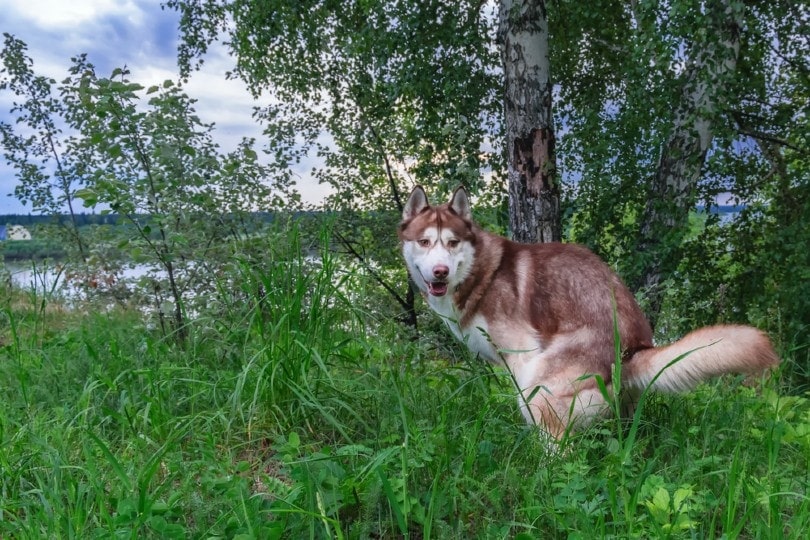
Is It Normal?
Yes! It is completely normal for a dog to poop immediately after eating. So, next time your pooch scoots over to the food bowl and starts chowing down, don’t be alarmed if they make a mad dash for their favorite corner of the garden.
Just be sure to keep an eye on them and make sure they’re not eating too much or too quickly, as this can lead to stomach aches and other digestive issues. If your dog is having trouble pooping after eating, consult your veterinarian to rule out any health concerns. Otherwise, just relax—it’s all part of being a pet parent!
How Often Do Dogs Poop?
Dogs typically poop one to three times a day, depending on their diet and lifestyle. Factors that influence pooping frequency include:
- Age
- Size
- Quality of Food
- Frequency of Eating
Age
Puppies typically poop more frequently than adult dogs, while senior dogs may poop less often. Puppies have developing digestive systems that are still getting used to eating solid food. They also tend to eat many small meals throughout the day, rather than large servings.
In contrast, senior dogs often have slower metabolisms and may not eat as much.
Size
You’d think small dogs would poop more often simply because they have less room inside them, but surprisingly it’s the opposite! Larger dogs have higher metabolic rates to account for their higher energy requirements.
As such, they process food faster and will poop more often than small dogs.
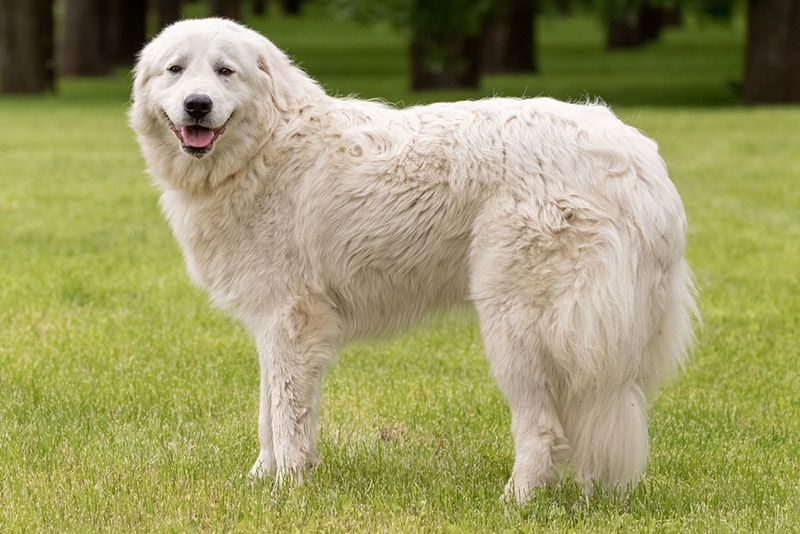
Quality of Food
The quality of your dog’s food will also affect how often they poop. Dogs that eat high-quality diets with plenty of fiber and excellent ingredients will typically poop once a day, while dogs that consume poorer-quality diets or lots of treats may poop up to three times a day.
Studies show that dogs on diets consisting of high-quality, human-grade ingredients poop less often than those on a commercial-grade diet. Cheaper foods are often made with lots of fillers, these increase the food quantity at a low cost but offer little to no nutritional value. Any of the extra stuff your dog doesn’t need, they’ll poop out.
Frequency of Eating
Your dog’s bowels are like a factory. Their digestive tract is the production line, which, for a healthy pooch, functions at the same basic rate. The frequency of the output (poop) will depend on the frequency of the input (food).
Dogs that eat smaller, more frequent meals may poop more often, while the regular dog that eats two meals will poop once or twice a day.
Final Thoughts
We all know that eating and pooping are two ends of the same stick (more specifically, tract) but your dog needing to poop right after eating can seem strange when you first make the observation.
But as with most things dog-related, there’s a reason for this behavior and it’s usually nothing to worry about. As long as your dog’s poop looks healthy and normal and they don’t seem to have any trouble passing waste, then everything is probably normal. Just make sure to let them outside after a meal!
Featured Image Credit: SasaStock, Shutterstock


